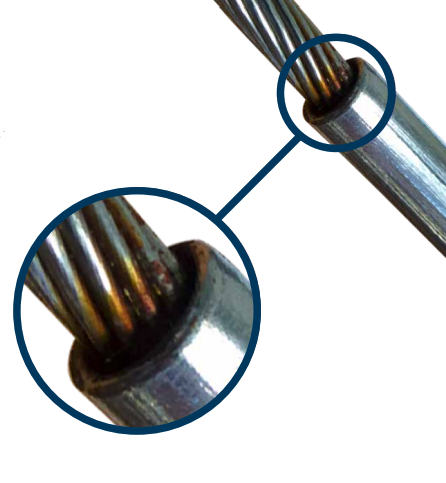Stainless steel is a wonderful material, and treated properly, it will stay bright and stainless forever. Sadly, natural saltwater is one of the most aggressive and corrosive media towards stainless steel, and even the ”acid resistant” 316L class requires a bit of maintenance in order to stay stainless.
In case of 316L above water, the main issue is time. Saltwater is very aggressive towards virtually any alloy, and the key issue is to keep the contact time as short as possible. In wet, temperate conditions, such as Scandinavia, the Canadian West Coast or the South Island of New Zealand, the all-too-common rain takes care of this, however, in warmer and drier conditions, such as Southern Europe and The Middle East, things are much different. Here, all saltwater sprayed onto the steel from below will tend to stick to the steel forever, with little chance of rain from above. Similar conditions are observed in dry season in the Caribbean, the tropical
Pacific, or in South-East Asia. In the wet season, these places receive large amounts of rain, rendering any freshwater cleaning superfluous.
Very likely, the saltwater will cause superficial pitting corrosion, and although such attacks may not cause operational failure, it certainly looks unattractive and should be avoided. The best and cheapest way to avoid pitting corrosion is to keep the contact time low. Cleaning off the saltwater as quickly as possible keeps the contact time short, and the risk of corrosion correspondingly low. The more frequent the freshwater rinse, the better, and, presumably, a thorough rinse every fortnight should do the trick.
Be particularly aware that fittings below a braided steel cable are particularly prone to collecting saltwater, and so is the braided cable itself. Due to gravity, the upper fittings (pointing downwards) are less exposed to saltwater and may be rinsed less frequently.
If freshwater is not available, the second-best solution is to rinse with saltwater and dry the steel immediately afterwards. It is, still, preferable to use low-chloride water (i.e. freshwater) as often as possible.
To find out about marine stainless steel maintenance read this article – https://bluewave.com.au/marine-rig-maintenance
For stockists of the Blue Wave products contact Miami Stainless at www.miamistainless.com.au or www.prorig.com.au for all reseller enquiries.


